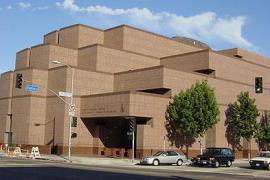In January 2002, when I presented my proposal for a European Day of the Righteous to the European Parliament, I inserted a clause to remember, along with those who had done everything possible to save Jewish lives, also those who had defended human dignity in the years of communism.
Then, in the three months in which we could gather the signatures among the deputies, Yad Vashem's direction circulated in Brussels a critical document stating that remembering the Holocaust rescuers together with communism opponents would have diminished the uniqueness of the Shoah, as the suffering of the countries that had lived under Soviet occupation could not be placed on a par with the Jewish tragedy.
In the faces of such remarks, in a meeting I held in Jerusalem with the people in charge of the Memorial, I assessed it would be a serious mistake to suppress the crimes of communism in the name of Holocaust remembrance.
Asking Eastern European countries to take up responsibility for their collaboration with the Nazis in the Ukraine, Hungary, Rumania, as well as the Baltic countries, though without remembering the crimes perpetrated by communism, would mean creating a barrier of incomprehension between the holders of the two memories. How could we ask people to recognize the pain endured by the Jews, unless we would remember the one suffered by those countries during the proSoviet regimes?
It was like saying: you citizens of the East should undergo a moral purification process for the guilts of the proNazi regimes, but "us Jews" refuse to take into account the evil that befell you with the communist oppression.
A closure stance, as I tried to explain to the people in charge of Yad Vashem, would not only be anti-historical, because it would remove the memory of the two forms of totalitarianism that had hit Europe with a death toll of millions people, - Jews and non Jews -, but would also lead to dangerous short circuits and alienate the sympathy of those societies towards the Jewish world.
Instead, precisely because I had remembered the resistants against communism in the European Parliament, my proposals about the memory of the Righteous rescuers of Jews were met with a certain degree of sympathy by the deputies from those countries.
It is not by chance that the Garden of the Righteous that we created in Warsaw in May of last year, was met with a great consent in Poland as it unified the memory of the Holocaust with the one of communism. So that country with a grim and lasting antisemitic heritage could experience a growth in the awareness of the value of the Righteous who, defying conformity, had helped the Jews.
Hence, dialogue and recognition of the other's suffering had become a way to put forward more forcefully our argument against antisemitism and for Jewish memory.
These words of mine did not really convince the people in charge of Yad Vashem. who remained anchored to the idea that any kind of comparison between the two kinds of totalitarianism would anyway diminish the memory of the Holocaust.
Thus today when the Ukrainan Parliament passed a motion that places the nazi crimes on the same par with the communist ones, once again from Israel, from the Simon Wiesenthal Centre, a heavily toned complaint was issued, that accused the Ukrainan leaders to exploit communist crimes to conceal Nazi collaboration.
If there had not been the Red Army, says the organization that became justly famous for its search for Nazi criminals, the Ukrainan Nazi collaborators would not have been stopped and it would not have been able to liberate Auschwitz.
Of course, this is a legitimate remark. But what is forgotten, unfortunately, with a major lack of historical knowledge, is that the Ukraine was not only a country where a part of the population had helped the Nazis, but also the one that more than others had suffered from communist crimes. Before the Nazi invasion, millions Ukrainan peasants had been starved in the tragic Holodomor, the famine induced by Stalin through forced collectivization, and then hundreds thousands people were contaminated with the explosion of the atomic plant of Chernobyl, also due to the Soviet attempt to conceal the seriousness of the event from the public eye.
Hence it is unclear why all this part of history should be forgotten. Of course, we can ask questions about the cowardice of the Ukrainan collaborators, but why should the Ukraine not have the right to remember the million deaths in communism, that have nothing to do with Nazism or the Holocaust?
This shortsighted stance of the Wiesenthal Centre surely does not help the struggle against antisemitism and creates a dangerous misunderstanding: the legitimate memory of communism is presented as a form of Holocaust denial.
When a memory does not comprised the other memories and is taken as the only one worth being defended, there is something wrong.







